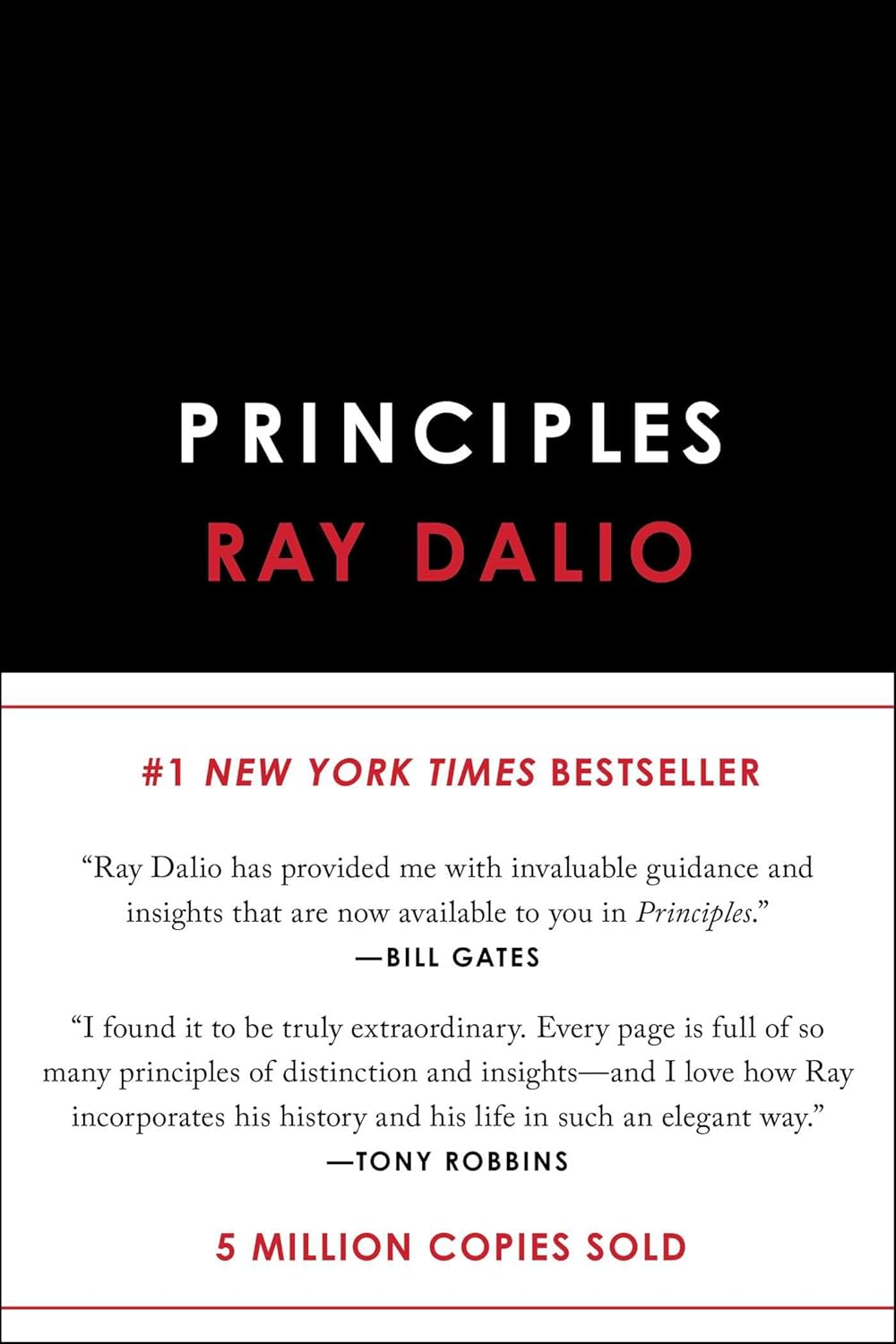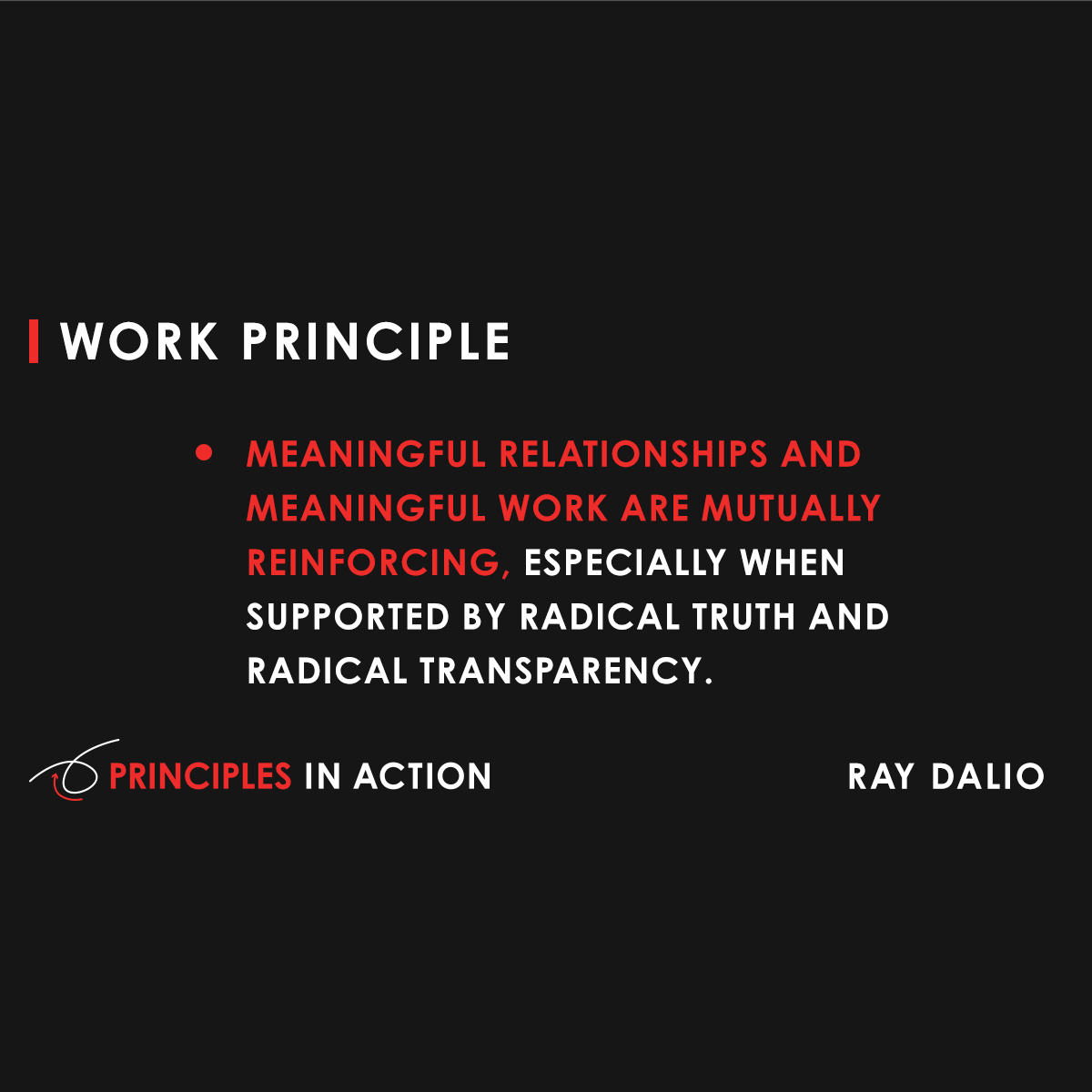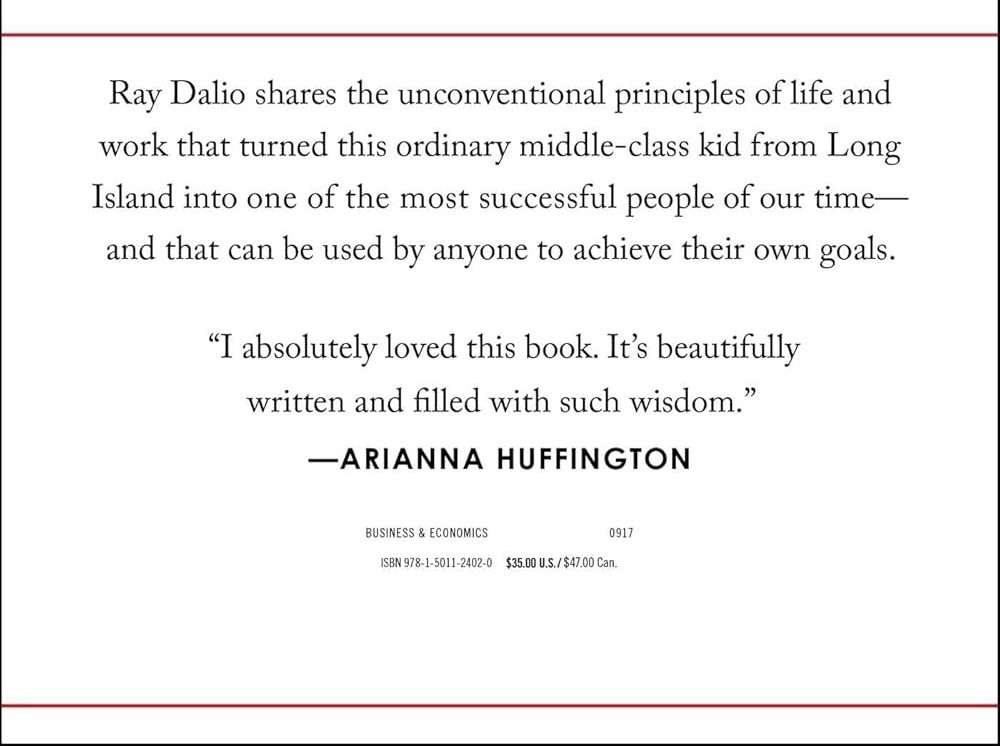
Ray Dalio’s Principles: Life and Work is a seminal work that bridges personal development, organizational leadership, and decision-making frameworks. Published in 2017, the book consolidates the hard-won wisdom of a man who built one of the world’s most successful hedge funds, Bridgewater Associates, from scratch. Far more than a memoir, Principles: Life and Work is Dalio’s attempt to distill his life philosophy and management systems into a reproducible model that others can apply to achieve meaningful success and self-actualization.
Structured in three main parts—“Where I’m Coming From,” “Life Principles,” and “Work Principles”—the book offers a journey through Dalio’s personal and professional life, leading to a deeply systematic framework for thinking and acting. While some may see it as prescriptive or dogmatic, Principles: Life and Work is undeniably one of the most ambitious and comprehensive efforts in recent business literature to formalize how individuals and organizations can operate more effectively.
Part 1: Where I’m Coming From
The first section of Principles: Life and Work is autobiographical, setting the stage for the principles that follow. Dalio recounts his journey from a middle-class upbringing in Long Island, New York, to becoming the founder of Bridgewater Associates, a firm known as much for its performance as for its unique, often controversial culture.
Dalio’s early fascination with markets began in high school, where he invested in stocks. After graduating from Long Island University and later earning his MBA from Harvard Business School, he worked at several Wall Street firms before founding Bridgewater in 1975 from his two-bedroom apartment. His career-defining moment came in 1982 when he publicly predicted a financial crisis that never materialized. The fallout nearly destroyed his business. Dalio was forced to lay off his entire staff and borrow money from his father.
Rather than being defeated, Dalio treated this as a pivotal learning experience. He realized that facing reality and reflecting on failure was the best way to improve. This insight laid the foundation for what would become his core philosophy: pain + reflection = progress.
This section is deeply personal and sets the tone for the rest of Principles: Life and Work. It isn’t just a backstory—it is Dalio’s argument for why experience, humility, and systems thinking matter more than intelligence or even success.
Part 2: Life Principles
The second part of Principles: Life and Work moves from narrative to theory. Dalio outlines a set of universal “life principles” based on his experiences, mistakes, and observations. These are framed around the idea of embracing reality and dealing with it effectively.
Some key principles include:
1. Embrace Reality and Deal with It
Dalio argues that people are often too driven by emotions or wishful thinking. True success comes from aligning with reality—no matter how unpleasant. This principle is rooted in the idea that the universe operates according to fixed laws, and understanding these laws leads to better decisions.
2. Be Radically Open-Minded
Dalio advocates for radical open-mindedness, the willingness to consider that you might be wrong and that others may know more than you. He encourages seeking out thoughtful disagreement as a path to truth. To Dalio, open-mindedness is not a soft skill but a critical competitive advantage.
3. Use the 5-Step Process to Get What You Want
Dalio introduces a 5-step framework for achieving goals:
- Have clear goals.
- Identify problems preventing you from reaching those goals.
- Diagnose those problems to find their root causes.
- Design plans to address the problems.
- Execute those plans relentlessly.
This model forms the heart of Dalio’s decision-making process and is applicable across personal and professional domains.
4. Understand That People Are Wired Very Differently
Dalio stresses the importance of understanding human psychology. People have different strengths and weaknesses, and aligning roles with innate abilities is essential. He suggests using personality tests and other tools to better assess and leverage people’s strengths.
5. Pain + Reflection = Progress
Failure and discomfort are not only inevitable—they are essential to growth. Dalio promotes a mindset where pain triggers a process of reflection, which then leads to learning and evolution. This echoes Stoic philosophy and modern behavioral psychology alike.
These life principles are presented in bullet-point format, which makes them easily digestible. However, they are also accompanied by anecdotes, decision trees, and even algorithms, making them highly systematic.

Part 3: Work Principles
The final and most detailed section of Principles: Life and Work covers “Work Principles,” where Dalio applies his philosophy to organizational life. Here, the tone becomes more instructional, and the content reflects his real-world experience building Bridgewater’s culture.
At the center of this culture are two controversial concepts:
1. Radical Truth and Radical Transparency
Bridgewater is known for recording most meetings, encouraging all employees to challenge one another—including leadership—and maintaining an environment where the best ideas, not the most senior people, win.
Radical truth means saying what you really believe. Radical transparency means exposing your reasoning, actions, and motivations to scrutiny. Dalio argues this leads to faster, better decision-making and minimizes office politics.
2. Idea Meritocracy
Dalio believes organizations function best when decisions are made based on the merit of ideas rather than hierarchy. At Bridgewater, a tool called the “Dot Collector” lets employees rate each other’s performance in real time. These scores influence decisions on everything from promotions to project assignments.
To facilitate this, Dalio created systems like:
- Baseball cards summarizing employees’ strengths and weaknesses.
- Believability-weighted decision making, where votes are weighted based on credibility in a given domain.
- Pain buttons for real-time awareness of emotional reactions to feedback.
3. Hiring and Management
Dalio is rigorous about hiring people who fit the culture. He outlines a detailed protocol for recruitment, emphasizing alignment with principles over raw skill. Managers are expected to be coaches, not just overseers, and accountability is taken very seriously.
Dalio encourages a “guardrails” approach: employees are given freedom but within clearly defined parameters. Micromanagement is discouraged, but so is hands-off neglect.
Cognitive and Philosophical Foundations
At its core, Principles: Life and Work is a blend of rationalism, behavioral psychology, systems engineering, and Stoicism. Dalio sees the world as a complex machine—full of interacting parts that can be understood, modeled, and improved.
His worldview borrows from thinkers like:
- Marcus Aurelius and Seneca, in viewing pain as part of life and growth.
- Daniel Kahneman, in acknowledging cognitive biases.
- Charlie Munger, in emphasizing multidisciplinary thinking.
- Tony Robbins, in leveraging strategic goal-setting and personal accountability.
This cross-disciplinary approach is part of the book’s appeal. Dalio doesn’t just talk about investing or business—he talks about thinking, learning, and evolving as a human being.
Impact and Legacy
Since its publication, Principles: Life and Work has become a bestseller and a staple in leadership and business circles. It’s frequently cited alongside books like The 7 Habits of Highly Effective People and Thinking, Fast and Slow. Dalio’s TED Talks, LinkedIn posts, and YouTube animations have extended his influence beyond finance into education and public discourse.
The success of Principles: Life and Work has also led Dalio to expand the concept into a brand. He has released Principles for Success (a shorter, illustrated version), Principles for Navigating Big Debt Crises, and Principles for Dealing with the Changing World Order. He even launched an app to help individuals track their own principles and decision-making patterns.
Bridgewater’s methods—particularly radical transparency—have become the subject of case studies, praise, and controversy. Some see it as a bold experiment in organizational design. Others criticize it as invasive or authoritarian. Dalio himself acknowledges that his system is not for everyone, but argues that it can be transformative for those willing to adopt it.

Criticisms and Counterpoints
Despite its strengths, Principles: Life and Work is not without limitations:
1. Tone and Presentation
Dalio’s tone can come across as overly authoritative. He tends to write as if his way is the way. For readers seeking dialogue or nuance, this can be off-putting. The book occasionally borders on self-congratulatory, especially when recounting Bridgewater’s triumphs.
2. Scalability and Applicability
Many principles are context-specific. What works in a hedge fund with highly analytical employees may not work in a creative agency or non-profit. Dalio acknowledges this but still presents his ideas as broadly applicable.
3. Emotional Intelligence
Some readers argue the book underemphasizes the role of empathy, emotion, and relational dynamics in leadership. The heavy reliance on algorithms, assessments, and feedback systems can feel mechanistic.
4. Repetition and Length
At nearly 600 pages, the book is long and occasionally repetitive. The exhaustive lists of principles can feel like overkill, particularly in the third section. A more streamlined presentation might improve accessibility.
Conclusion
Principles: Life and Work is a rare book that attempts—and often succeeds—to merge autobiography, philosophy, and management science into one coherent vision. Ray Dalio offers not just insights but tools—methods that anyone can use to improve decision-making, build teams, and live more intentionally.
Whether or not you agree with Dalio’s methods, his core message resonates: in a complex and uncertain world, those who confront reality honestly, learn from experience, and operate systematically will fare better than those who do not. Dalio doesn’t promise success; he promises clarity—and in that, Principles: Life and Work delivers.
For individuals interested in self-improvement, strategic thinking, and organizational design, Principles: Life and Work is a must-read. Its blend of rigor and realism makes it one of the most impactful books in the modern business canon.
Check out Principles: Life and Work by Ray Dalio on Amazon by clicking here.
If you found this review useful please share it with friends and family and then check out some of our other Book Reviews.
.
